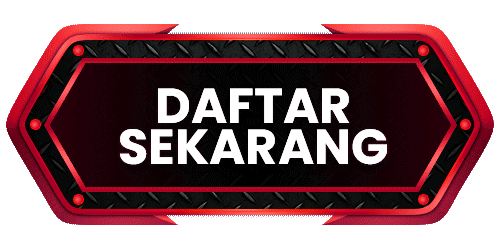RAFIGAMING
RAFIGAMING >> Bandar Slot777 Online & Slot Gacor Online Terbaru 2024
RAFIGAMING >> Bandar Slot777 Online & Slot Gacor Online Terbaru 2024
Couldn't load pickup availability
Situs Rafigaming sebagai penyedia resmi permainan slot777 dan sekaligus bandar slot gacor online terbaru 2024 dimana pemain bisa merasakan game yang termutakhir dan sangat gampang untuk meraih kemenangan jackpot besar.
RAFIGAMING >> Situs Daftar Slot Gacor Ini Hari & Agen Slot Maxwin Anti Rungkad
Rafigaming sebagai penyandang situs slot gacor x1000 maxwin & daftar slot online anti rungkad di Asia. Para member slot gacor pasti akan menelusuri situs slot anti rungkad x1000. Oleh sebab itu slot gacor Rafigaming adalah solusi buat slotter yang trauma dengan kekalahan teruk dalam bermain slot. Rafigaming slot maxwin anti rungkad memiliki akun vip slot untuk setiap member yang mendaftar & bisa di buktikan langsung.
Setelah mendapatkan akun slot VIP dari situs Rafigaming, maka semua permainan slot yang dimainkan akan sangat gampang untuk menang karena memiliki winrate diatas rata rata 98%. Sungguh fantastis situs slot maxwin dan slot gacor hari ini di Rafigaming. Di samping itu slot gacor hari ini juga memberikan kemudahan para member setia dengan fitur metode pembayaran yang luar biasa cepat dan terhindar dari kekalahan telak sesuai dengan slogan "Slot Anti Rungkad".
Sensasional x500 Slot Gacor Mudah Jackpot Rafigaming
Slot gacor atau slot sensasional x500 Rafigaming sudah menjadi andalan para slotter mania yang ingin menambah pemasukan dengan bermain slot, situs Rafigaming merupakan solusi satu-satunya dibandingkan dengan situs-situs lain. Rafigaming juga menyediakan fitur RTP Gacor Hari ini kepada setiap member untuk dapat menganalisa game slot mana yang lagi gacor. Berikut daftar game slot anti rungkad yang paling diminati member Rafigaming:
- Slot Gacor Gates Of Olympus
- Slot Anti Rungkad Sweet Bonanza
- Slot Maxwin Wild Bounty Show Down
- Slot Gacor Anti Rungkad Aztec Bonanza
- Slot VIP Gacor Wild Bandito
- Slot Maxwin Anti Rungkad Mahjong Ways 2
- Slot Vip Anti Rungkad Starlight Princess
Slot Demo Pragmatic Gacor Indonesia
Slot Demo Pragmatic Play Provider Gacor Terbaik di Indonesia bisa dimainkan dengan geratis tanpa harus menyetorkan deposit atau harus daftar akun slot terlebih dahulu. Terlebih untuk para penggemar game slot gacor online, Slot demo ini sangat lah cocok buat kalian putar dan mainkan agar bisa menjadi tolak ukur game slot mana yang sedang on fire. Pragmatic Slot Demo Play memfasilitasi game slot gratis yang menggunakan slot uang rupiah asli buat kalian bermain terlebih dahulu sebelum mencoba melakukan pendaftaran dan melakukan deposit. Hanya perlu mendownload aplikasi slot pragmatic apk ios & android kalian sudah bisa merasakan sensasi bermain slot gacor terpopuler yang bisa memberikan keuntungan tanpa batas.
Perlu diakui tidak semua game slot itu bisa sukses mengambil simpati para pemain slot di Indonesia, karena tidak semua game slot tersebut asyik baik dari winrate maupun tampilan yang memukau buat pemain. Type permainan atau variasi slot masing masing memiliki karakteristik khusus serta keunikan special yang di cari para pemain untuk mendapatkan jackpot maxwin. Teruntuk agen slot yang konon katanya mampu memberikan kemenangan tiap member yg bermain slot gacor di Indonesia dengan berbagai jenis mesin slot atau provider slot yang resmi di Indonesia.
Jika anda baru saja memulai bermain permainan slot, sangat dianjurkan untuk bermain pada Slot Demo Online tersebut agar bisa menyadari dan paham, yang manakah permainan slot yang nantinya bisa dimainkan.
Seputar pertanyaan member baru tentang situs Rafigaming Bandar Slot777
Amankah Bermain Di Situs Rafigaming Slot777?
Pasti Aman Ya Bosku.. karena situs rafigaming sudah memiliki lisensi resmi dari PAGCOR dan merupakan agen resmi dari IDNSport, Jadi berapa pun kemenangan member pasti akan di bayar tuntas.
Apakah Rafigaming memiliki metode pembayaran lengkap?
Rafigaming menyediakan berbagai metode pembayaran atau deposit selain support bank local indonesia, situs kami juga support e-wallet, seperti QRIS, OVO, DANA, GOPAY, Link Aja, NEObank, BLU, JAGO, JENIUS, bahkan metode transfer pulsa.
Share

